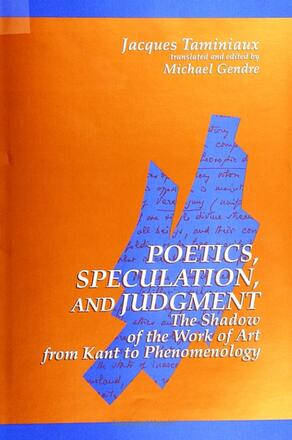
Poetics, Speculation, and Judgment
The Shadow of the Work of Art from Kant to Phenomenology
Alternative formats available from:
Jacques Taminiaux is Professor of Philosophy at Boston College and at the University of Louvain-la-Neuve, where he is the Director of the Center for Phenomenological Studies. He is the author of Heidegger and the Project of Fundamental Ontology, also published by SUNY Press.
Reviews
"Jacques Taminiaux has demonstrated his preeminence as a historian and philosopher of post-Kantian continental philosophy. In this book, he explicates the emergence of aesthetic judgment in Kant's thought, traces the theoretical provocation it provided for accounts in its wake in German Idealism, and finally, shows the effect of these considerations on developments in more recent accounts. To this end Taminiaux provides important readings of Schiller, Hölderlin, Schelling, Hegel, Schopenhauer, Nietzsche, Heidegger, and Merleau-Ponty.
"Taminiaux's discussions of the interface between issues concerning the end of metaphysics, the problem of speculation, and the question of the death of art are especially informative. His analyses throughout are unparalleled, and the book is to be recommended for the insights it provides to issues concerning the history and impact of aesthetics.
"The book also provides insight to the itinerary of Taminiaux's own thought, covering issues which the author has treated over a period of three decades and whose timeliness recurs precisely because he is still willing to put his analyses to the test. His insight regarding questions of the history of aesthetics and its relevance for contemporary issues is unparalleled. " — Stephen Watson, University of Notre Dame